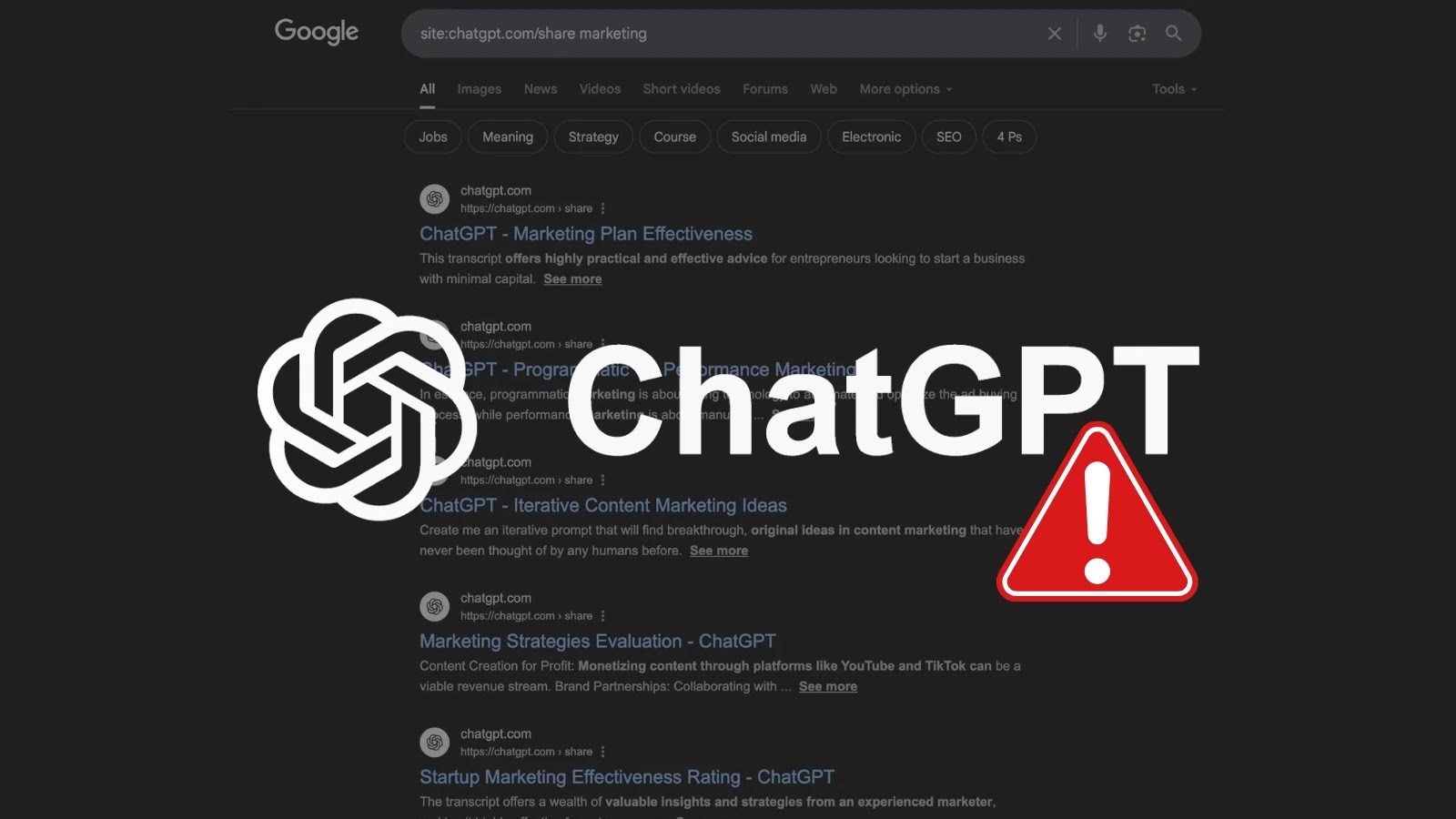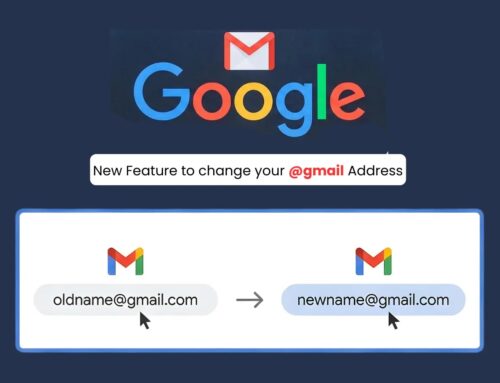
Search Engines are Indexing ChatGPT Conversations! – Here is our OSINT Research
Imagine your private conversations with an AI, intended for personal use or internal development, suddenly appearing in the open internet for anyone to discover. This isn’t a hypothetical fear; it’s a stark reality for users of OpenAI’s ChatGPT. Recent investigative reports have exposed a disturbing vulnerability: major search engines are indexing shared ChatGPT conversations, effectively transforming private exchanges into publicly discoverable content accessible to millions worldwide. This unearthing by Fast Company, which initially revealed nearly 4,500 ChatGPT conversations in Google search results, underscores a critical privacy and security concern that demands immediate attention from individuals and organizations alike.
The Unsettling Discovery: Private Chats Go Public
The issue of ChatGPT conversations being indexed by search engines first came to light through rigorous investigative reporting. Fast Company’s deep dive into search engine results exposed thousands of supposedly private interactions becoming publicly accessible. This wasn’t an isolated incident; it pointed to a systemic flaw where shared conversation links were being crawled and indexed by major search engine algorithms. The inherent problem lies in the mechanism through which ChatGPT facilitates sharing: a unique URL is generated for each shared conversation. While this feature simplifies collaboration and dissemination, it simultaneously opens a pandora’s box if these URLs aren’t properly secured against indexing.
The core of the problem stems from how search engines discover content. They rely on web crawlers that follow links, including those shared from platforms like ChatGPT. If a conversation’s sharing link is posted in a publicly accessible location – even inadvertently – or if the platform itself doesn’t explicitly block indexing, these conversations become fair game for search engine bots. This dramatically expands the potential for sensitive information exposure, moving beyond simple data breaches to widespread, persistent public access.
Understanding the Vulnerability: Exposed Conversation Links
The vulnerability centers on the shareable links generated by ChatGPT. When a user opts to share a conversation, a unique URL is created. These URLs, when exposed to the web (e.g., shared in public forums, on social media, or even if a user’s browser history is crawled by a search engine if not properly secured), become discoverable. This behavior is akin to an open directory listing on a web server: if the server isn’t explicitly configured to hide its contents, search engines will find and catalog them.
The absence of robust “noindex” directives or equivalent measures for these shared conversation URLs tells search engine crawlers that these pages are fit for public consumption. This isn’t a specific CVE in the traditional sense, as it’s a design and configuration oversight rather than a software flaw in a single component. However, the impact is undeniably severe, constituting a significant privacy and security risk. This situation highlights the paramount importance of strict access control and content visibility configurations for any platform generating unique shareable links.
Implications for Data Privacy and Security
The public indexing of ChatGPT conversations carries severe implications across multiple fronts:
- Sensitive Data Exposure: Users, often unconsciously, input sensitive personal identifiable information (PII), proprietary business data, or confidential project details into discussions with AI. Public indexing means this sensitive data becomes accessible to anyone with an internet connection, leading to potential identity theft, corporate espionage, or privacy violations.
- Intellectual Property Leakage: Developers and researchers might use ChatGPT to refine code, brainstorm ideas, or discuss experimental concepts. If these conversations are indexed, unreleased intellectual property could be inadvertently exposed, undermining competitive advantage and potentially leading to patent infringements.
- Reputational Damage: Individuals and organizations could face significant reputational fallout if their internal discussions, development processes, or even trivial personal interactions are made public without consent.
- Compliance and Regulatory Violations: For businesses, the exposure of data through indexed ChatGPT conversations can lead to violations of regulatory frameworks like GDPR, HIPAA, or CCPA, resulting in hefty fines and legal ramifications.
- Adversarial Exploitation: Malicious actors can leverage publicly available conversations to gather intelligence for targeted phishing attacks, social engineering schemes, or to identify vulnerabilities in systems discussed within those chats.
Remediation Actions and Best Practices
Addressing this privacy vulnerability requires a multi-pronged approach involving both immediate user actions and platform-level enhancements. While OpenAI has stated they are addressing the issue (referencing the incident that led to CVE-2023-38029, a different but related privacy concern regarding user data visibility), the current situation with public indexing requires specific responses.
- Audit Shared Conversations: Users should immediately review their shared ChatGPT conversations to identify any links that might contain sensitive information. Delete any such conversation links from public platforms or shared documents.
- Exercise Extreme Caution with Sensitive Data: Treat any information input into ChatGPT as potentially publicly discoverable, regardless of sharing intentions. Avoid inputting PII, confidential business data, or proprietary information into the model, especially if there’s any chance of sharing the conversation.
- Implement “Noindex” for Shared Links (Platform Responsibility): OpenAI and similar AI platforms must implement robust “noindex” meta tags or X-Robots-Tag HTTP headers for all shared conversation URLs. This explicitly instructs search engine crawlers not to index these pages.
- Require Authentication for Shared Links: Consider implementing a mechanism where shared conversation links require authentication (e.g., a login or a unique access token) before content is displayed, even if indexed.
- Educate Users on Sharing Risks: Platforms should provide clear, prominent warnings to users about the implications of sharing conversations, emphasizing the potential for public indexing.
- Regularly Monitor Search Engine Results: Organizations, especially, should conduct regular OSINT (Open Source Intelligence) monitoring of search engine results for terms related to their intellectual property or internal projects to identify any unintended data exposure. Tools mentioned below can assist in this.
- Review and Update Internal Policies: Companies should update their data handling and AI usage policies to reflect the risks associated with public AI models and shared conversation features.
Tools for Detection and Monitoring
While the primary remediation for existing indexed conversations relies on search engine de-indexing requests and platform changes, certain tools can aid in monitoring and detection:
| Tool Name | Purpose | Link |
|---|---|---|
| Google Search Console | Monitor indexing status, identify indexed pages, and request URL removal (for your own verified domains). | https://search.google.com/search-console/ |
| Bing Webmaster Tools | Similar to Google Search Console for Bing’s search index. | https://www.bing.com/webmasters/about |
| Maltego | OSINT tool for data mining and link analysis to discover potential data exposures. | https://www.maltego.com/ |
| Shodan.io | While not directly for ChatGPT, useful for broader OSINT to identify inadvertently exposed services or files that might contain conversation links. | https://www.shodan.io/ |
Custom Python Scripts (e.g., using requests and BeautifulSoup) |
Programmatic searching of public archives or forums for specific keywords unique to your conversations. | https://www.python.org/ |
Conclusion: A Call for Heightened Awareness and Proactive Security
The discovery that major search engines are indexing ChatGPT conversations is a sobering reminder of the persistent and evolving challenges in maintaining digital privacy. This incident underscores a critical need for both AI platform providers and users to adopt a more proactive and security-conscious approach. For users, it highlights the importance of scrutinizing every piece of information shared with AI models and being acutely aware of the implications of “sharing” features. For platform providers, it’s a clear call to action to implement robust privacy-by-design principles, ensuring that features intended for convenience do not inadvertently compromise user data. As AI becomes increasingly integrated into our daily workflows, vigilance against unintended data exposure will remain paramount in safeguarding personal and organizational security.





